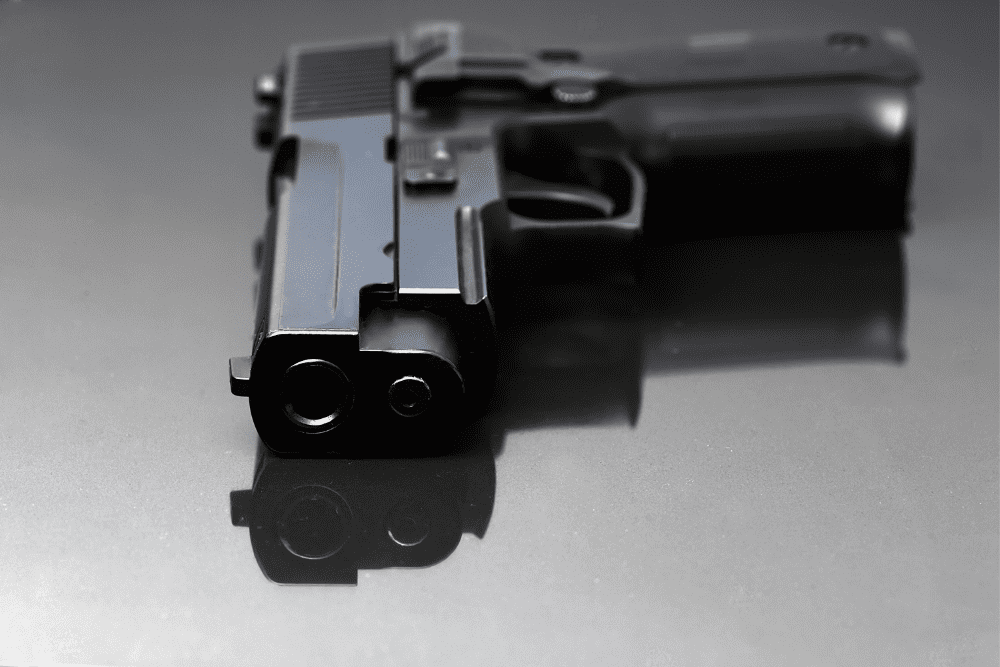Robbery is a serious crime in Minnesota, and the exact charges can vary based on the circumstances – one example being whether or not the perpetrator is armed with a dangerous weapon… or even just says they are.
Take, for instance, the recent robbery that happened at a Northern Minnesota convenience store. A white male wearing a black hood, face covering, and green vest entered the store and gave a note to one of the clerks. The note demanded cash and stated that the suspect had a gun. The suspect, who was about six feet tall and weighed about 200 pounds, got away with cigarettes and an undisclosed amount of cash.
Although the note the suspect gave to the clerk stated that the suspect was armed, he never showed a firearm. What does this mean for the charges the suspect may face if he is apprehended?
Simple Robbery vs. Aggravated Robbery
In our state, there are three different charges for robbery: simple robbery, first degree aggravated robbery, and second degree aggravated robbery. Here are the definitions for each according to the 2020 Minnesota Statutes:
- Simple Robbery (Section 609.24) – “Whoever, having knowledge of not being entitled thereto, takes personal property from the person or in the presence of another and uses or threatens the imminent use of force against any person to overcome the person’s resistance or powers of resistance to, or to compel acquiescence in, the taking or carrying away of the property is guilty of robbery and may be sentenced to imprisonment for not more than ten years or to payment of a fine of not more than $20,000, or both.”
- First Degree Aggravated Robbery (Section 609.245, Subdivision 1) – “Whoever, while committing a robbery, is armed with a dangerous weapon or any article used or fashioned in a manner to lead the victim to reasonably believe it to be a dangerous weapon, or inflicts bodily harm upon another, is guilty of aggravated robbery in the first degree and may be sentenced to imprisonment for not more than 20 years or to payment of a fine of not more than $35,000, or both.”
- Second Degree Aggravated Robbery (Section 609.245, Subdivision 2) – “Whoever, while committing a robbery, implies, by word or act, possession of a dangerous weapon, is guilty of aggravated robbery in the second degree and may be sentenced to imprisonment for not more than 15 years or to payment of a fine of not more than $30,000, or both.”
As indicated above, simple robbery is the least serious of these three different types of charges in Minnesota. Whether first degree or second degree, aggravated robbery is a more serious charge due to the presence or implied presence of a weapon.
So, how does all this relate to the recent robbery in northern Minnesota?
Remember, the suspect claimed in the note he handed to the clerk that he had a gun. In other words, he implied he was armed. If he is caught, this will affect the charges brought against him, and he will most likely be charged with second degree aggravated robbery.
Defenses Against Minnesota Robbery Charges
If you have been accused of robbery, there are different types of defenses that may be available to you:
- You are innocent – In the United States, a defendant is innocent until proven guilty. In other words, they cannot be convicted if there is a reasonable doubt that they committed the crime. If you can provide an alibi, or if there are eyewitnesses who can verify that you were elsewhere when the robbery took place, that can be used as evidence of your innocence.
- You were a victim of entrapment – Entrapment is hard to prove; however, if the defendant can show, for example, that the victim instigated the robbery just to bring charges against the defendant, entrapment may be a viable defense.
- You were under duress – If you were forced to commit a robbery by being threatened with death or bodily harm, duress is also a possible defense. As with entrapment, however, it can be difficult to prove duress.
If you have been accused of committing a robbery in Minnesota, you have rights. Depending on the circumstances, you may be able to mount a strong legal defense to reduce or dismiss the charges brought against you. Reach out to an attorney with experience defending against robbery charges and learn what your options are.
About the Author:
Christopher Keyser is an AV-Preeminent rated criminal and DWI defense attorney based in Minneapolis who is known for fighting aggressively for his clients and utilizing innovative tactics to get the most positive results. He has been featured in numerous media outlets due to the breadth and depth of his knowledge and named a Certified Specialist in Criminal Law by the Minnesota Bar Association. Mr. Keyser is Lead Counsel rated, and he has received recognition for his criminal law work from Avvo, Expertise, Super Lawyers, The National Trial Lawyers, and more.








